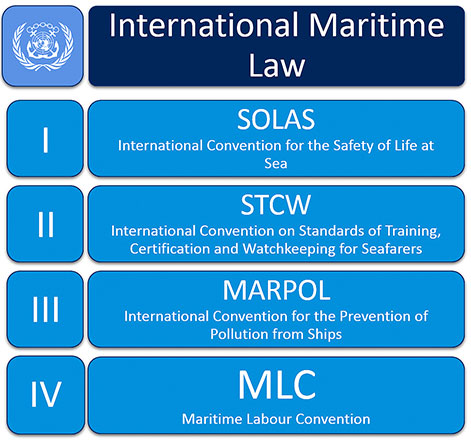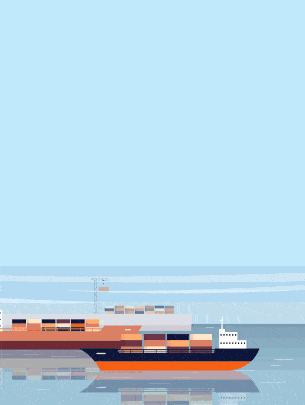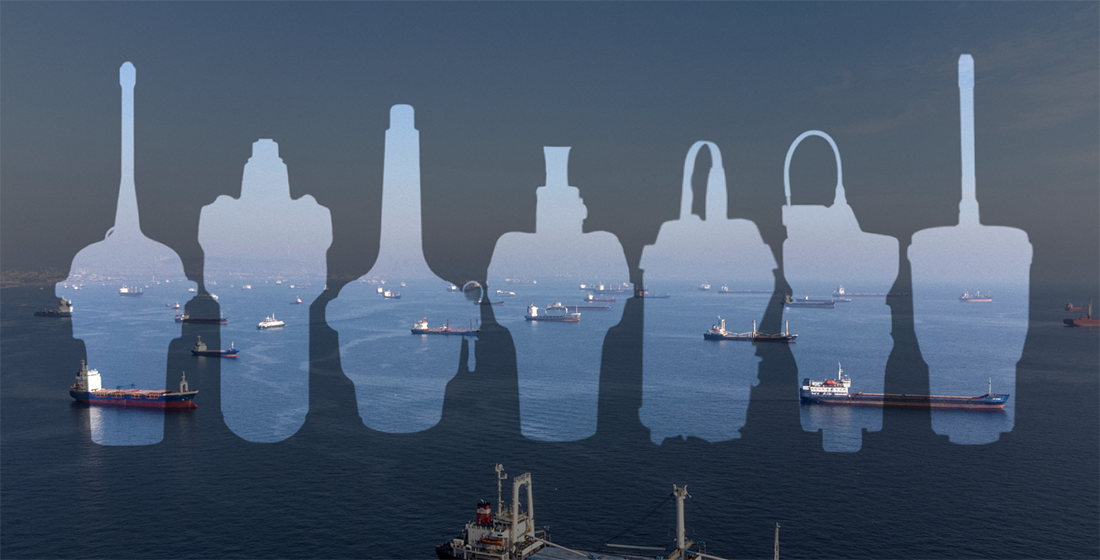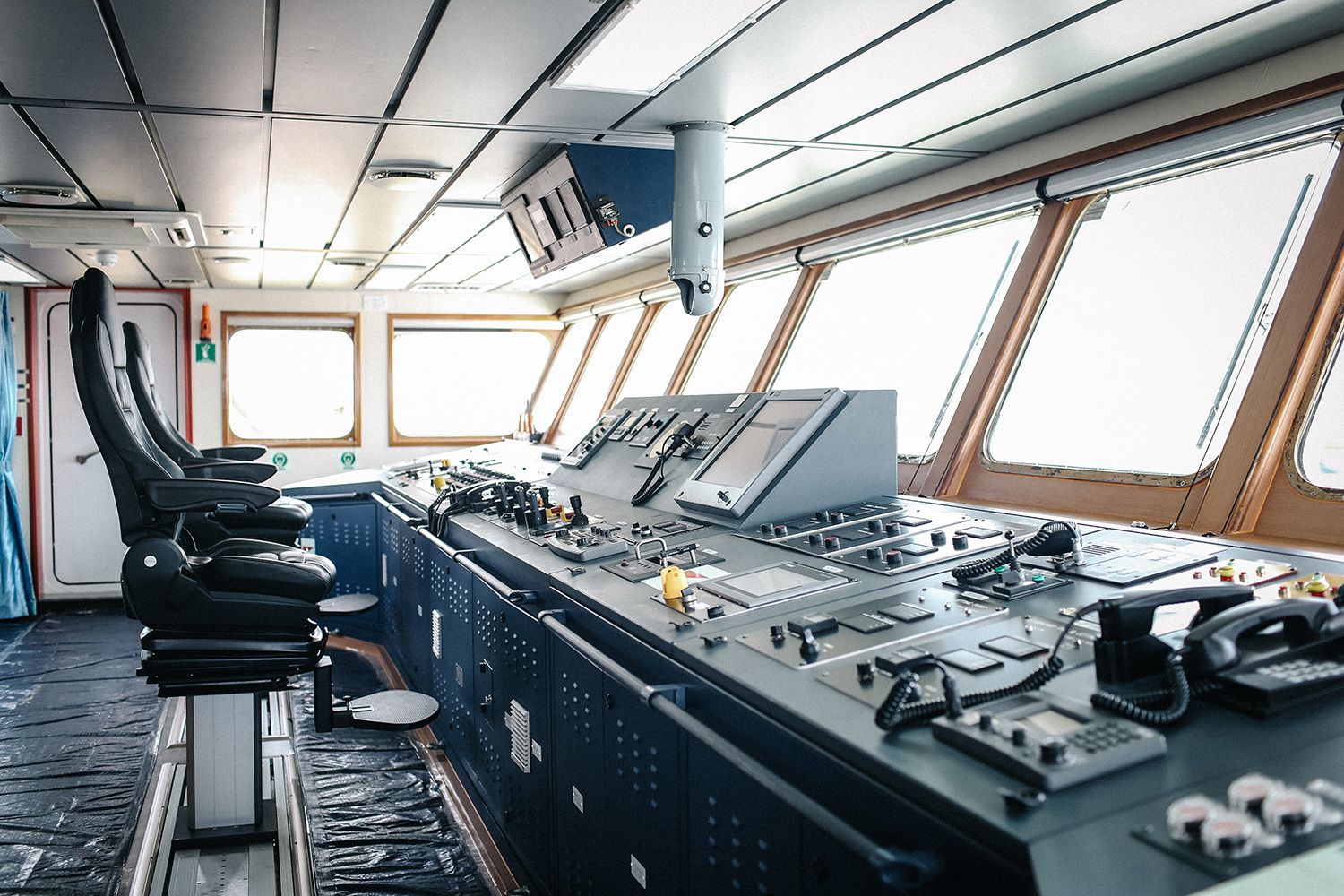SOLAS Convention
The International Convention for the Safety of Life at Sea (SOLAS) is an international maritime agreement which requires Signatory flag states to ensure that ships flagged by them comply with minimum safety standards in construction, equipment and operation. The current version of the SOLAS Convention is the 1974 version, known as SOLAS 1974, which came into force on 25 May 1980. As at March 2016, SOLAS 1974 has 162 contracting States, which flag about 99% of merchant ships around the world in terms of gross tonnage.
The first version of SOLAS was passed in 1914 in response to the sinking of the RMS Titanic. It prescribed numbers of lifeboats and other emergency equipment along with safety procedures, including continuous radio watches. But the 1914 treaty never entered into force due to the outbreak of the First World War.
The second version was signed in 1929, the third in 1948, and the fourth in 1960. The 1974 version includes the tacit acceptance procedure - which provides that an amendment shall enter into force on a specified date unless, before that date, objections to the amendment are received from an agreed number of Parties.
The 1974 Convention has been amended many times to keep it respective to modern conditions of navigation and technology development.

Amendments adopted by the Maritime Safety Committee (MSC) are listed in MSC Resolutions.
All ships over 300 gross tonnage (GRT) on international voyages, and hence subject to the 1974 SOLAS Convention, have been required to comply with the carriage requirements of the GMDSS since 1 February 1999.
The carriage requirements for ships subject to the SOLAS Convention, or voluntarily GMDSS equipped are contained in Chapter IV of SOLAS with amplifying advice provided in AMSA Marine Order 27 (Radio Equipment) 2009. Some requirements (e.g. for SAR locating devices) are also contained in Chapter III of SOLAS, the International Life-Saving Appliance (LSA) Code, and the High Speed Craft (HSC) Code. For vessels not subject to the SOLAS Convention but are required to be GMDSS ‘compatible’ by Commonwealth legislation the carriage requirements are contained in Appendix 6 AMSA Marine Order 27 (Radio Equipment) 2009. The carriage requirements for both GMDSS compliant and GMDSS compatible ships are designed to ensure the vessel can meet the functional requirements of the GMDSS relevant to that vessel and its operating area/s.
SOLAS, Protocol of 1988 relating to the International Convention for the Safety of life at Sea, 1974
THE PARTIES TO THE PRESENT PROTOCOL,
BEING PARTIES to the International Convention for the Safety of Life at Sea, 1974, done at London on 1 November 1974,
RECOGNIZING the need for the introduction into the above-mentioned Convention of provisions for survey and certification harmonized with corresponding provisions in other international instruments,
CONSIDERING that this need may best be met by the conclusion of a Protocol Relating to the International Convention for the Safety of Life at Sea, 1974,
HAVE AGREED as follows:
Article I
General Obligations
1 The Parties to the present Protocol undertake to give effect to the provisions of the present Protocol and the Annex hereto, which shall constitute an integral part of the present Protocol. Every reference to the present Protocol constitutes at the same time a reference to the Annex hereto.
2 As between the Parties to the present Protocol, the provisions of the International Convention for the Safety of Life at Sea, 1974, as amended, (hereinafter referred to as "the Convention" shall apply subject to the modifications and additions set out in the present Protocol.
3 With respect to ships entitled to fly the flag of a State which is not a Party to the Convention and the present Protocol, the Parties to the present Protocol shall apply the requirements of the Convention and the present Protocol as may be necessary to ensure that no more favourable treatment is given to such ships.
Article II
Prior treaties
1 As between the Parties to the present Protocol, the present Protocol replaces and abrogates the Protocol of 1978 relating to the Convention.
2 Notwithstanding any other provisions of the present Protocol, any certificate issued under, and in accordance with, the provisions of the Convention and any supplement to such certificate issued under, and in accordance with, the provisions of the Protocol of 1978 relating to the Convention which is current when the present Protocol enters into force in respect of the Party by which the certificate or supplement was issued, shall remain valid until it expires under the terms of the Convention or the Protocol of 1978 relating to the Convention, as the case may be.
3 A Party to the present Protocol shall not issue certificates under, and in accordance with, the provisions of the International Convention for the Safety of Life at Sea, 1974, as adopted on 1 November 1974.
Article III
Communication of information
The Parties to the present Protocol undertake to communicate to, and deposit with, the Secretary-General of the International Maritime Organization (hereinafter referred to as "the Organization"):
(a) the text of laws, decrees, orders and regulations and other instruments which have been promulgated on the various matters within the scope of the present Protocol;
(b) a list of nominated surveyors or recognized organizations which are authorized to act on their behalf in the administration of measures for safety of life at sea for circulation to the Parties for information of their officers, and a notification of the specific responsibilities and conditions of the authority delegated to those nominated surveyors or recognized organizations; and
(c) a sufficient number of specimens of their certificates issued under the provision of the present Protocol.
Article IV
Signature, ratification, acceptance, approval and accession
1 The present Protocol shall be open for signature at the Headquarters of the Organization from 1 March 1989 to 28 February 1990 and shall thereafter remain open for accession. Subject to the provisions of paragraph 3, States may express their consent to be bound by the present Protocol by:
(a) signature without reservation as to ratification, acceptance or approval; or
(b) signature subject to ratification, acceptance or approval, followed by ratification, acceptance or approval; or
(c) accession.
2 Ratification, acceptance, approval or accession shall be effected by the deposit of an instrument to that effect with the Secretary-General of the Organization.
3 The present Protocol may be signed without reservation, ratified, accepted, approved or acceded to only by States which have signed without reservation, ratified, accepted, approved or acceded to the Convention.
Article V
Entry into force
1 The present Protocol shall enter into force twelve months after the date on which both the following conditions have been met:
(a) not less than fifteen States, the combined merchant fleets of which constitute not less than fifty per cent of the gross tonnage of the world's merchant shipping, have expressed their consent to be bound by it in accordance with article IV, and
(b) the conditions for the entry into force of the Protocol of 1988 relating to the International Convention on Load Lines, 1966, have been met,
provided that the present Protocol shall not enter into force before 1 February 1992.
2 For States which have deposited an instrument of ratification, acceptance, approval or accession in respect of the present Protocol after the conditions for entry into force thereof have been met but prior to the date of entry into force, the ratification, acceptance, approval or accession shall take effect on the date of entry into force of the present Protocol or three months after the date of deposit of the instrument, whichever is the later date.
3 Any instrument of ratification, acceptance, approval or accession deposited after the date on which the present Protocol enters into force shall take effect three months after the date of deposit.
4 After the date on which an amendment to the present Protocol is deemed to have been accepted under article VI, any instrument of ratification, acceptance, approval or accession deposited shall apply to the present Protocol as amended.
Article VI
Amendments
The procedures set out in article VIII of the Convention shall apply to amendments to the present Protocol, provided that:
(a) references in that article to the Convention and to Contracting Governments shall be taken to mean references to the present Protocol and to the Parties to the present Protocol respectively:
(b) amendments to the articles of the present Protocol and to the Annex thereto shall be adopted and brought into force in accordance with the procedure applicable to amendments to the articles of the Convention or the Chapter I of the Annex thereto; and
(c) amendments to the appendix to the Annex to the present Protocol may be adopted an brought into force in accordance with the procedure applicable to amendments to the Annex to the Convention other than Chapter I.
Article VII
Denunciation
1 The present Protocol may be denounced by any Party at any time after the expiry of five years from the date on which the present Protocol enters into force for that Party.
2 Denunciation shall be effected by the deposit of an instrument of denunciation with the Secretary-General of the Organization.
3 A denunciation shall take effect one year, or such longer period as may be specified in the instrument of denunciation, after its receipt by the Secretary-General of the Organization.
4 A denunciation of the Convention by a Party shall be deemed to be a denunciation of the present Protocol by that Party. Such denunciation shall take effect on the same day as denunciation of the Convention takes effect according to paragraph (c) of article XI of the Convention.
Article VIII
Depositary
1 The present Protocol shall be deposited with the Secretary-General of the Organization (hereinafter referred to as "the depositary").
2 The depositary shall:
(a) inform the Governments of all States which have signed the present Protocol or acceded thereto of:
(i) each new signature or deposit of an instrument of ratification, acceptance, approval or accession, together with the date thereof;
(ii) the date of entry into force of the present Protocol;
(iii) the deposit of any instrument of denunciation of the present Protocol together with the date on which it was received and the date on which the denunciation takes effect;
(b) transmit certified true copies of the present Protocol to the Governments of all States which have signed the present Protocol or acceded thereto.
3 As soon as the present Protocol enters into force, a certified true copy thereof shall be transmitted by the depositary to the Secretariat of the United Nations for registration and publication in accordance with Article 102 of the Charter of the United Nations.
Article IX
Languages
The present Protocol is established in a single original in the Arabic, Chinese, English, French, Russian and Spanish languages, each text being equally authentic. An official translation into the Italian language shall be prepared and deposited with the signed original.
DONE AT LONDON this eleventh day of November one thousand nine hundred and eighty-eight.
IN WITNESS WHEREOF the undersigned*, being duly authorized by their respective Governments for that purpose, have signed the present Protocol.
* Signatures omitted.





Be the first to comment